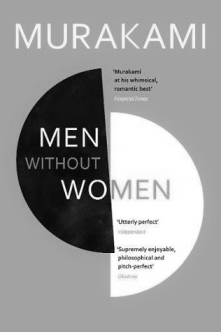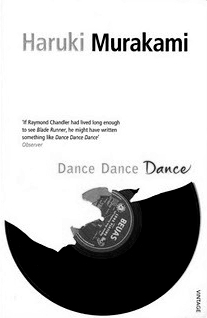I hadn’t picked up a book by Murakami in a while, despite him being one of my favourite authors. Looking back at my last review of one of his books, I said that I had to take a break because everything he wrote just seemed too similar to me, to the point that I was getting bored and annoyed. That was a great decision. Because these stories are still classic Murakami, integrating all of his usual elements, namely; a cat, jazz music, rainy days, suicide and bizarre happenings, but they felt new and mesmerising. They provoked so many thoughts that after I had finished the book, I wrote six whole journal entries about some of the excerpts that I found interesting from this collection.
The stories range from ordinary to vague and increasingly mysterious. The main character is always a man who feels slightly lost in life, and as such has to navigate his relationships with the women around him with care. It’s fascinating how similar the premise of these stories is to Hanif Kureishi’s ‘Love in a Blue Time’, which I read just a few weeks ago, but the two collections couldn’t be more different. While there is a brutality and vulgarity to Kureishi’s stories, Murakami’s stories have an atmosphere of stillness and delicacy. What these stories really illustrate is how much people can really complement each other. The women in Murakami’s stories always introduce excitement or present a new perspective that the main character would not otherwise have. Granted, this seems pretty obvious since that’s how we all see the people in our lives, but through the prism of intimacy, these aspects can add so much more. The discussions between the characters are fascinating and although they often edge closer to philosophical musings rather than simple conversations, it does not feel pretentious or forced at any point. The best example of this is the dream about the lampreys, but it would be impossible to recount here as eloquently as Murakami did in his book, so if you’re intrigued then this in itself is already an incentive for you to read the book.
I’d like to take just two of the excerpts that I found particularly inspiring and comment on them here. The first is taken from a moment in a story where the main character has had to go into hiding, although the reader never finds out why, and as such he’s been cautioned not to contact anyone yet he still sends a postcard to his aunt. What follows are his thoughts;
Kino wasn’t at all sure what had motivated him to write that. […] But Kino couldn’t restrain himself. I have to somehow get connected to reality again, he thought, or else I won’t be me anymore. I’ll become a man who doesn’t exist.
I had never encountered this feeling being described before, so this came as a pleasant surprise. Perhaps not everyone can relate to it, as I think it really applies to this theme of loneliness, but sometimes one may be overcome with this sensation that you are fading away, somehow disappearing from reality and at that moment there is a strong urge to either contact someone or, what social media has made increasingly easy, to prove that you still exist by making your presence known. It does not fall into the category of attention-seeking, since this particular feeling comes from a darker place. One which is difficult to explain if you have not been there. In any case, this was a small but meaningful excerpt.This is especially true for introverts because we often tend to live inside our minds, so much so that is is easier to get lost in that and disconnect from the world.
Funnily enough, I’d already written about the second excerpt but changed my mind about what I wanted to say about this collection. I’d rather like to comment on the very last story, titled ‘Men Without Women’. This is a story of longing, with very few details. It rather sets the scene of a man remembering a woman in his life, who has just died, and as he remembers her, he begins to feel as if a part of him has gone as well. The level of detail that Murakami is able to go into with regard to their affair, while still remaining vague enough that this story could apply to almost anyone, is an absolute skill. But the main question, that arises after reading it, is; what makes a man place himself in the category of ‘Men Without Women’? I found it beyond compelling to try to understand why this particular woman’s death evoked such strong emotions in the main character. The answers ranged from cynical – being that she had killed herself and so he felt obliged to delve into memories and moments spent with her, to more profound – that every person who we encounter leaves their mark upon us, and whether we like to admit it or not, we think about them more often that we’d like to admit, and as such their death, even if we have not see them for years, sends ripples of true sadness upon us, as if, because of that person being forever gone, the hope, which persists in our minds that we might one day encounter them and the story might begin anew, is gone.
This might quite possibly be my longest review, but I feel like this book deserved this in-depth and personalised analysis. I couldn’t even begin to express how much I suggest that you read it, because there are so many minute fragments from the conversations between the main characters, that I think might lead to some interesting thoughts, that it would be great to see what other people take away from this gem of a collection.
I give this book five out of five wine bottles.
![]()
![]()
![]()
![]()
![]()



